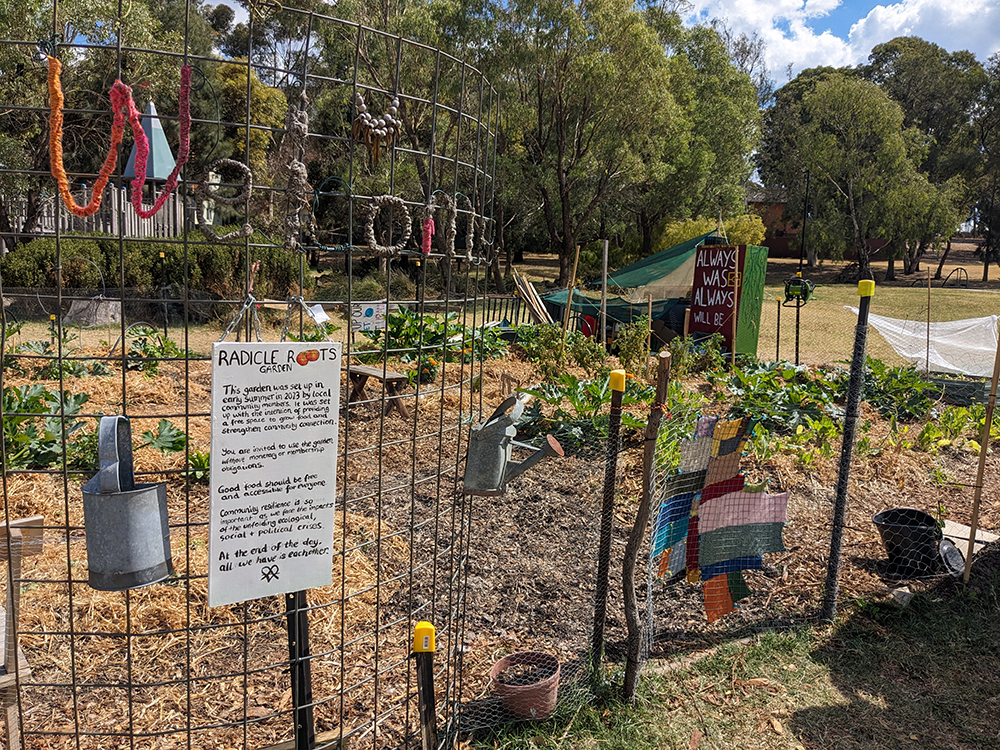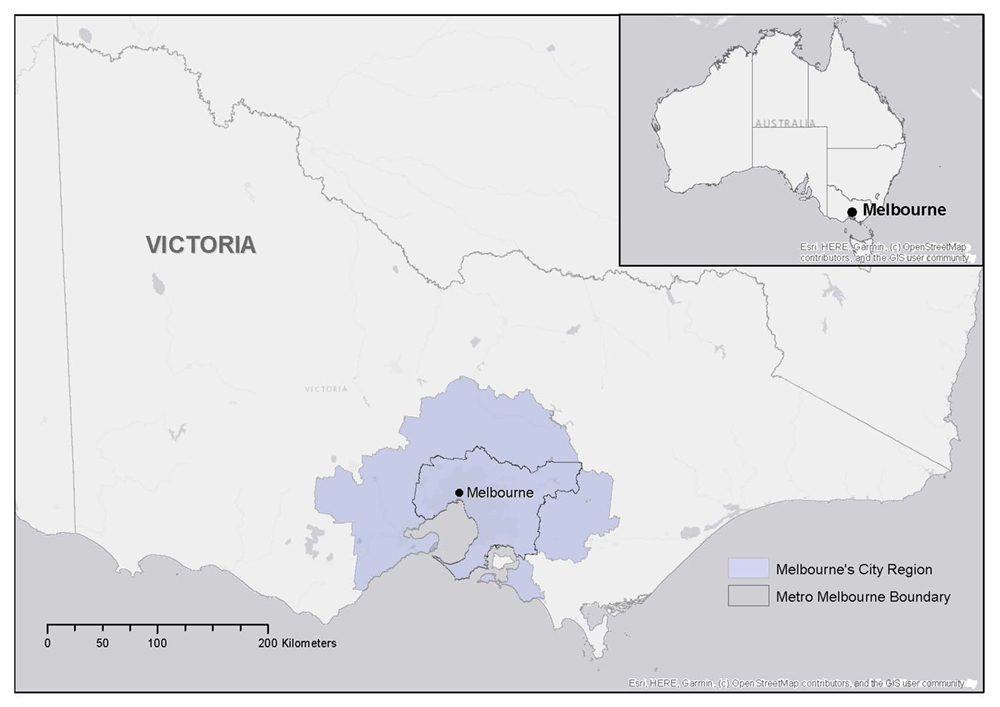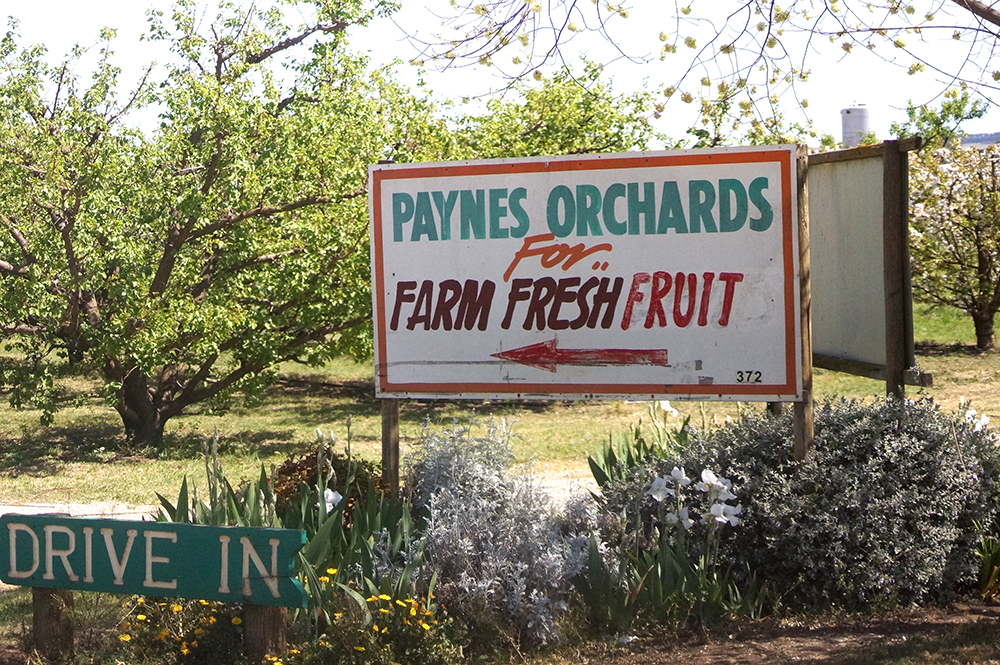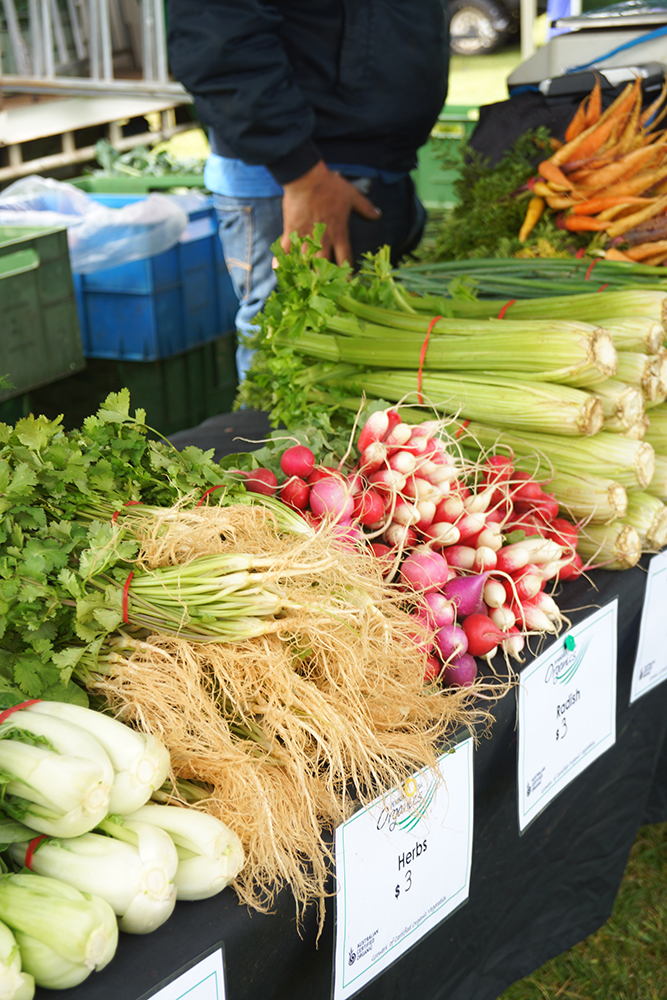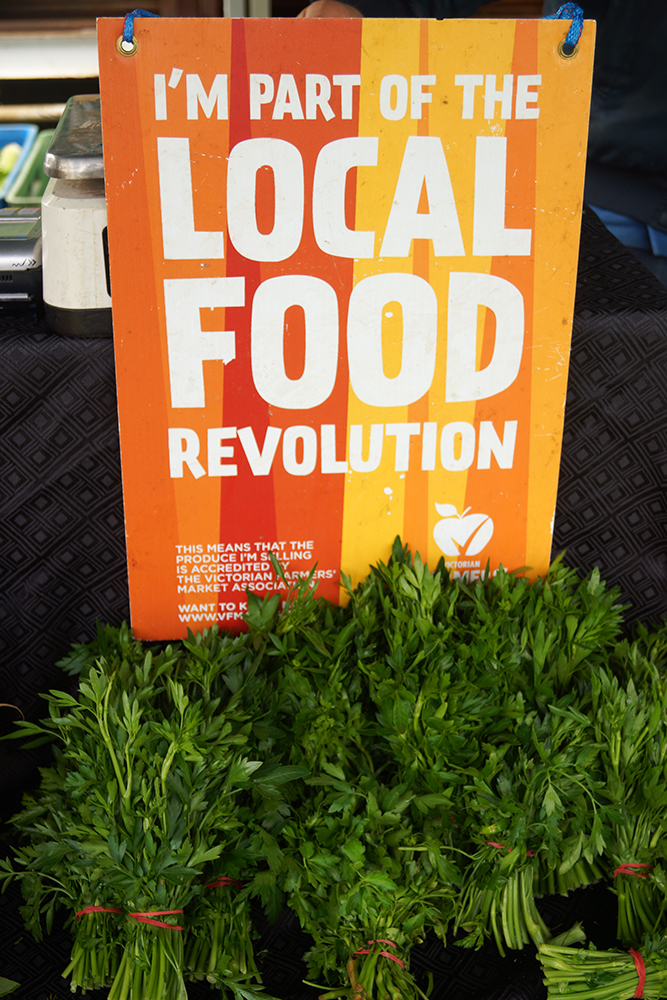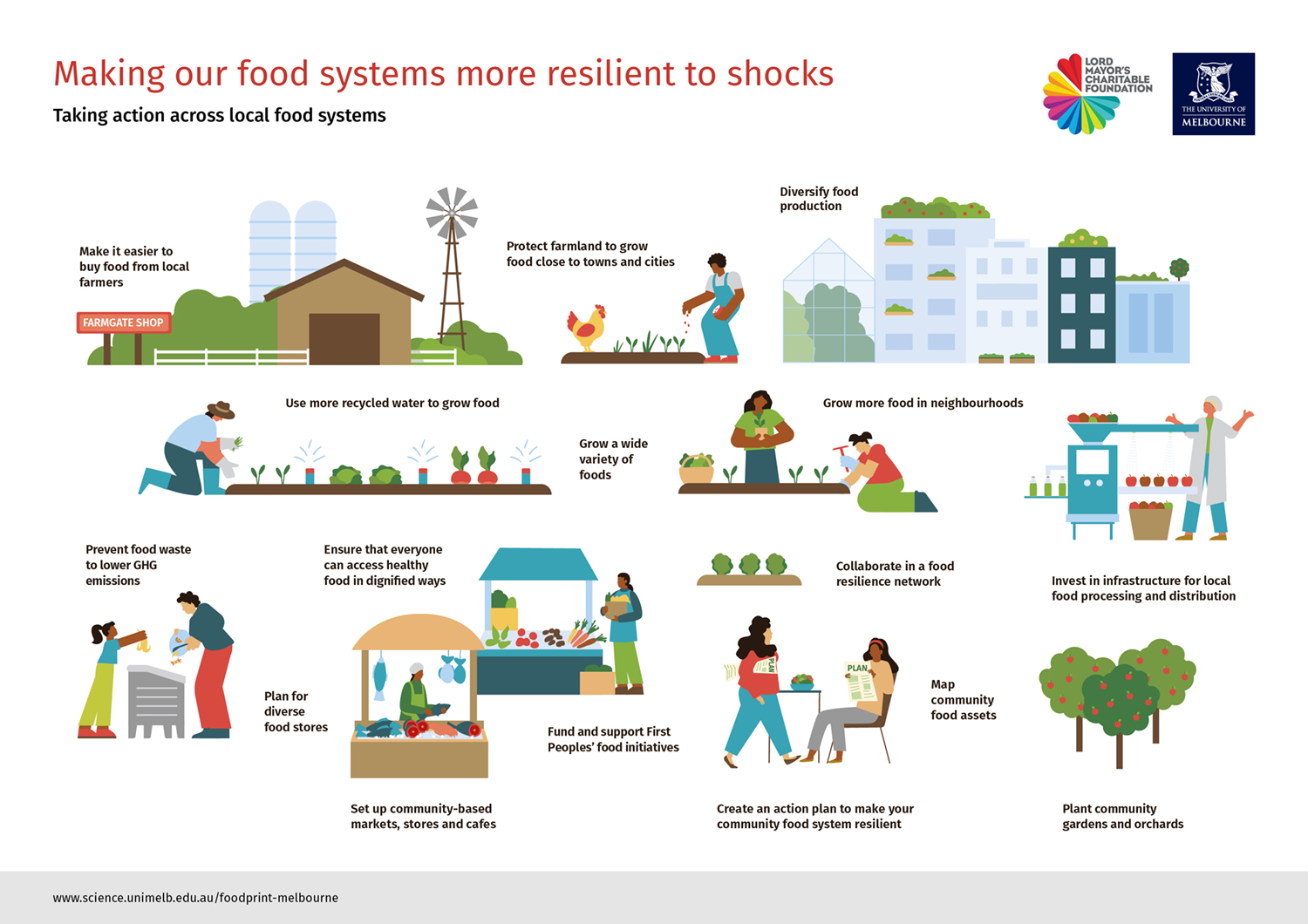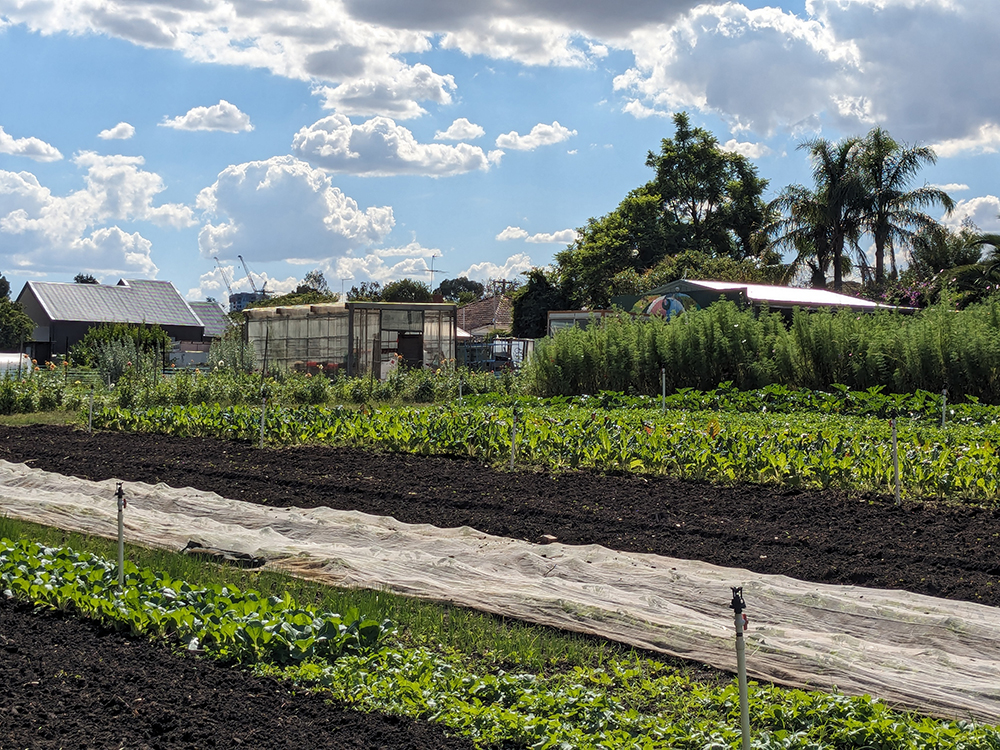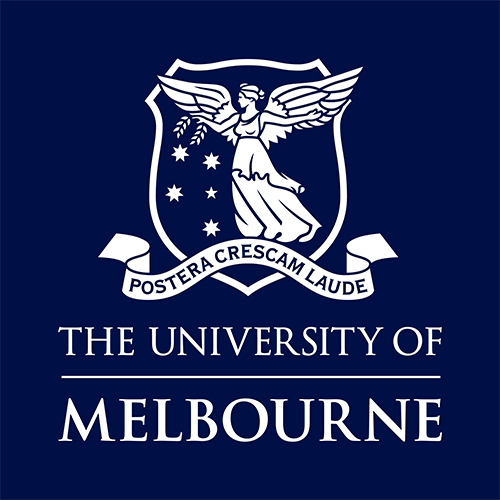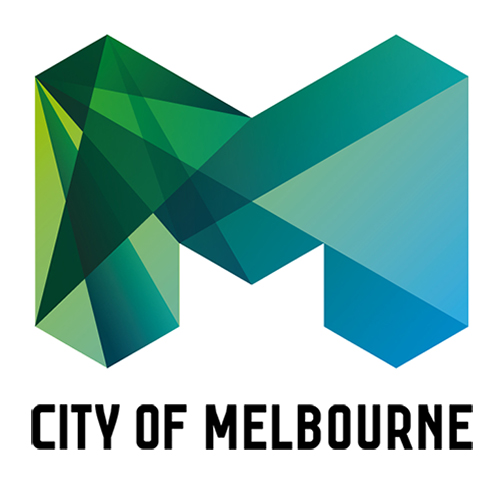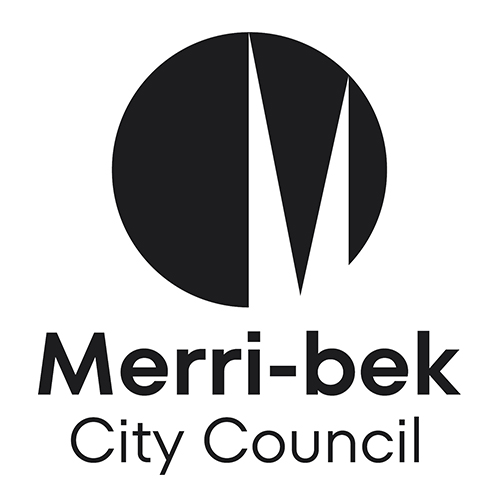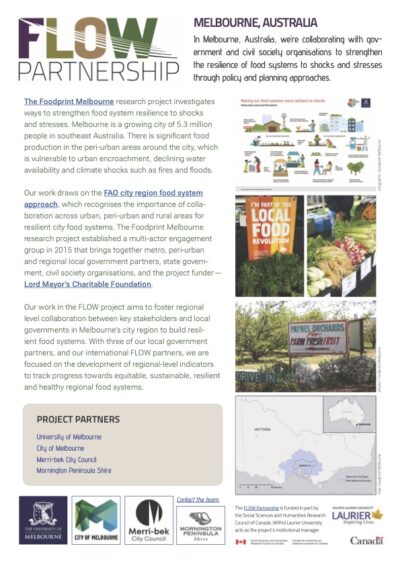Melbourne, Australia
In Melbourne, Australia, we’re collaborating with government and civil society organisations to strengthen the resilience of food systems to shocks and stresses through policy and planning approaches.
The Foodprint Melbourne research project investigates ways to strengthen food system resilience to shocks and stresses. Melbourne is a growing city of 5.3 million people in southeast Australia. There is significant food production in the peri-urban areas around the city, which is vulnerable to urban encroachment, declining water availability and climate shocks such as fires and floods.
Our work draws on the FAO city region food system approach, which recognises the importance of collaboration across urban, peri-urban and rural areas for resilient city food systems. The Foodprint Melbourne research project established a multi-actor engagement group in 2015 that brings together metro, peri-urban and regional local government partners, state government, civil society organisations, and the project funder—Lord Mayor’s Charitable Foundation.
Our work in the FLOW project aims to foster regional level collaboration between key stakeholders and local governments in Melbourne’s city region to build resilient food systems. With three of our local government partners, and our international FLOW partners, we are focused on the development of regional-level indicators to track progress towards equitable, sustainable, resilient and healthy regional food systems.

